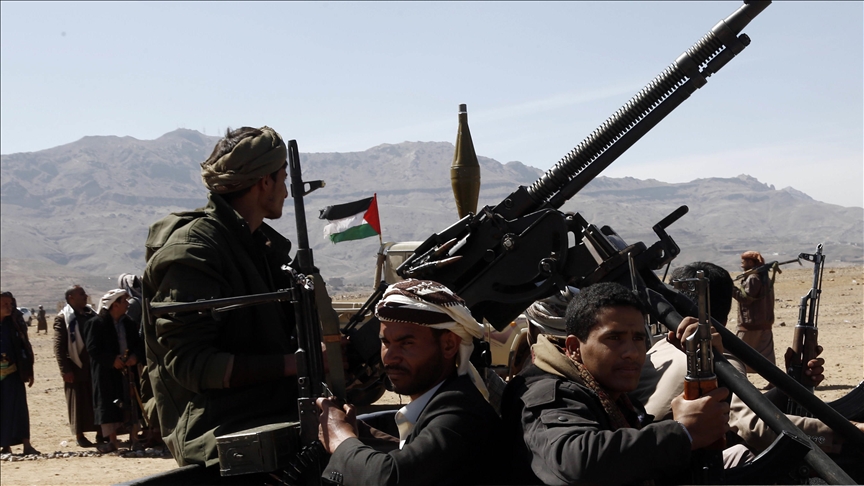In a dramatic twist that could reshape the 2024 US Presidential election, former President Donald Trump survived an assassination attempt at a campaign rally in Pennsylvania, catapulting the political climate into further turbulence. Less than 24 hours after the incident, Trump was recovering at his Bedminster golf club in New Jersey, while President Joe Biden convened with his top advisers in the White House Situation Room, contemplating the broader implications of the attack.
The attempt on Trump’s life has sent shockwaves through both Republican and Democratic camps, igniting fears that American democracy is again teetering on the edge of severe division and violence, reminiscent of the aftermath of the January 6th Capitol riot. This violent episode underscores the escalating tensions and toxicity that have come to characterize US politics in recent years.
Julian Zelizer, a professor of political history at Princeton University, noted, “The assassination attempt will be connected, inevitably, in people’s minds, not just to the shooter and even to the candidate, but to the broader culture.” This incident has already begun to embolden Trump, giving him renewed momentum in his bid for the White House. World leaders, who have been cautiously preparing for the possibility of his return, are reacting with a mix of alarm and acceptance.
Images of a bloodied Trump, fist raised defiantly as he was whisked away by Secret Service agents, have already become emblematic of his political resilience. Despite his numerous legal challenges, including a recent criminal conviction in New York, Trump holds a polling edge over Biden, both nationally and in key battleground states. The attempted assassination seems poised to further solidify his appeal, especially among his most fervent supporters and possibly even among independent voters seeking stability.
Veteran pollster Frank Luntz reflected on social media, “In recent months, President Trump has benefited from more passionate and engaged followers than the Biden campaign, but the shooting will turn that intensity gap into a chasm.” This sentiment is echoed by many in Trump’s circle, who believe that the attack will galvanize his base and attract sympathy from undecided voters.
In response to the assassination attempt, Biden’s campaign has suspended some advertising, signaling a potential shift in strategy. Bryan Lanza, a former Trump adviser, argued, “A major thread of Joe Biden’s campaign was talking about Trump being a threat to democracy. Now Biden can’t use that rhetoric anymore.” Lanza further pointed out that without this central message, Biden’s campaign may struggle to find a compelling narrative, especially given the administration’s challenges in addressing inflation, immigration, and foreign policy.
The timing of the assassination attempt, just ahead of the Republican National Convention in Milwaukee, adds another layer of complexity. At the convention, Trump is set to be officially nominated as the Republican presidential candidate, reinforcing his image as a political survivor. Senator Lindsey Graham of South Carolina remarked, “He’s one of the strongest people I’ve ever met. Obviously, God is not through with President Trump.”
However, alongside the rallying cries of support, there are also undercurrents of anger and blame. Some of Trump’s allies have criticized the Secret Service for not securing the location adequately, while others have pointed fingers at Biden, accusing him of fostering a hostile environment. Ohio Senator JD Vance and House member Mike Collins have made strong statements suggesting Biden’s rhetoric may have contributed to the attack. Trump, for his part, has urged for unity and resilience, emphasizing on his Truth Social platform, “It is more important than ever that we stand United, and show our True Character as Americans, remaining Strong and Determined, and not allowing Evil to Win.”
As the nation grapples with this latest episode of political violence, calls for de-escalation have emerged from both sides of the aisle. Democratic Senator Chris Coons urged Americans to “reduce the rhetoric and the tone,” while President Biden, facing internal pressures from within his party to step aside for a younger candidate, delivered a primetime address from the Oval Office, calling for national unity and reflection.
The implications of this assassination attempt extend beyond American borders. With Trump’s potential re-entry into the White House, global leaders are recalibrating their strategies. Trump’s unpredictable foreign policy and strongman persona have both alarmed and intrigued international figures. Allies and adversaries alike are bracing for the impact of his possible return, which could significantly alter international relations and global stability.
Domestically, the attack on Trump underscores the volatility of the current political environment. As the election approaches, the specter of further violence looms large. The rematch between Trump and Biden, already fraught with tension, now carries the additional weight of this assassination attempt, raising the stakes and deepening the divide within the country.
The road to November is now marked by uncertainty and heightened vigilance. Both campaigns must navigate this new landscape, balancing their responses to the violence with their broader political objectives. For Trump, the incident could prove to be a pivotal moment, transforming him from a beleaguered candidate into a symbol of resilience and defiance. For Biden, the challenge lies in maintaining a message of unity and progress while addressing the nation’s deep-seated divisions.
As the dust settles from this shocking event, one thing remains clear: the trajectory of the 2024 US election has been irrevocably altered, with far-reaching consequences for American politics and the global order.






